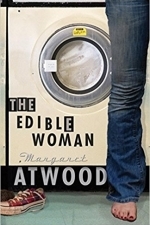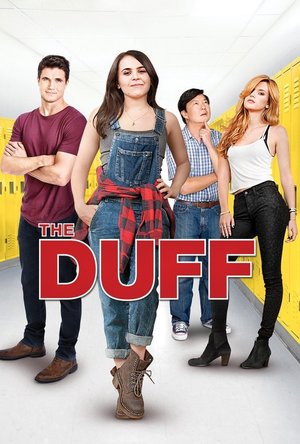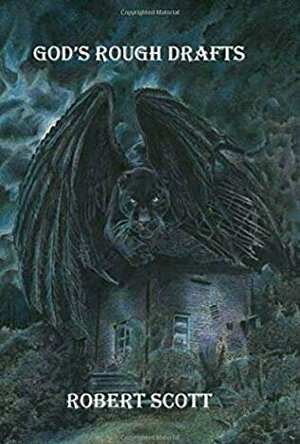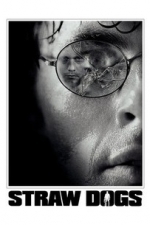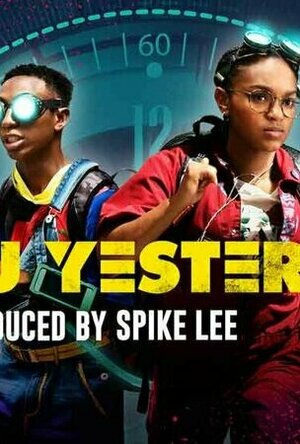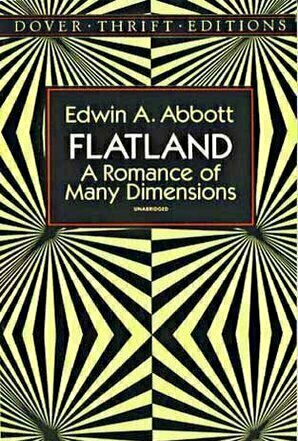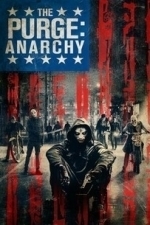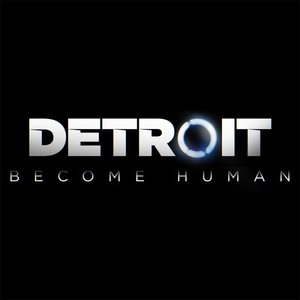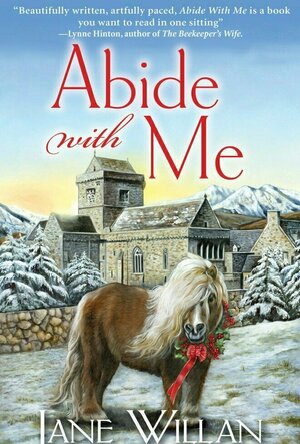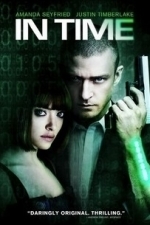Search
Search results
Jamie (131 KP) rated The Edible Woman in Books
May 24, 2017
An honest exploration of the roles of women, marriage, and entering adulthood
Marian is an average college-educated woman who lives with a roommate in a decent apartment, works for a survey company, is moderately good looking, and has a handsome fiancé who is on his way to being a big shot lawyer. It sounds like life altogether is going pretty well for Marian. Yet for some reason she feels empty, why?
The Edible Woman explores the themes of losing a sense of self with maturity. At work she is pushed around, her roommate Ainsley is inconsiderate, the landlady is judgmental, and her boyfriend Peter is self centered and makes snide comments at Marian’s expense, acting like he can barely tolerate her. With each encounter Marian puts aside her pride for the sake of avoiding conflict. Marian expresses her problems through eating, or the lack thereof, hinting at a potential eating disorder. Just as she feels inhibited in life, she suddenly feels inhibited with the kinds of food that she can eat.
As the story continues she begins to dread marriage and question the direction her life is going—becoming just as listless as her friend and former classmate Clara, who after marriage and three pregnancies just seems beaten down. Marian’s fiancé Peter is the stereotypical perfect bachelor: a man’s man that looks down on women and views marriage as a ball and chain. Peter pushes Marian around in order to mold her into a subservient woman. There is no longer any room for her thoughts, her feelings, or her desires from under his shadow.
But what about work? What are women’s roles in society and the work force? Throughout the story there are several women including Marian with college educations, yet none of them really have a stable career. Women are expected to be wives and mothers, there’s simply no time for an education or a job. In this case, their educations are ultimately viewed as their downfall due to the crushing reality of how little opportunity they would have. This was the very sad truth at the time the book was written and thankfully is not exactly the case now in most parts of the world.
Atwood tackles a large number of social issues throughout the book that I think would be important for any young woman. Adulthood, relationships, marriage, the choice between work and education versus starting a family, and lastly feminism—both good and bad. (Hint: Ainsely is a perfect example of a bad feminist.)
There are certain elements of the book that are becoming quite dated. Namely the typewriters, the social expectation that all women can be are housewives, and the limited ways that women can dress; These things might make it difficult for young women to look past and relate to the main character. Despite this the book is still incredibly relevant in the message that it brings about maintaining one’s individuality. I absolutely love this book and found a lot of my former self in it’s pages.
The Edible Woman explores the themes of losing a sense of self with maturity. At work she is pushed around, her roommate Ainsley is inconsiderate, the landlady is judgmental, and her boyfriend Peter is self centered and makes snide comments at Marian’s expense, acting like he can barely tolerate her. With each encounter Marian puts aside her pride for the sake of avoiding conflict. Marian expresses her problems through eating, or the lack thereof, hinting at a potential eating disorder. Just as she feels inhibited in life, she suddenly feels inhibited with the kinds of food that she can eat.
As the story continues she begins to dread marriage and question the direction her life is going—becoming just as listless as her friend and former classmate Clara, who after marriage and three pregnancies just seems beaten down. Marian’s fiancé Peter is the stereotypical perfect bachelor: a man’s man that looks down on women and views marriage as a ball and chain. Peter pushes Marian around in order to mold her into a subservient woman. There is no longer any room for her thoughts, her feelings, or her desires from under his shadow.
But what about work? What are women’s roles in society and the work force? Throughout the story there are several women including Marian with college educations, yet none of them really have a stable career. Women are expected to be wives and mothers, there’s simply no time for an education or a job. In this case, their educations are ultimately viewed as their downfall due to the crushing reality of how little opportunity they would have. This was the very sad truth at the time the book was written and thankfully is not exactly the case now in most parts of the world.
Atwood tackles a large number of social issues throughout the book that I think would be important for any young woman. Adulthood, relationships, marriage, the choice between work and education versus starting a family, and lastly feminism—both good and bad. (Hint: Ainsely is a perfect example of a bad feminist.)
There are certain elements of the book that are becoming quite dated. Namely the typewriters, the social expectation that all women can be are housewives, and the limited ways that women can dress; These things might make it difficult for young women to look past and relate to the main character. Despite this the book is still incredibly relevant in the message that it brings about maintaining one’s individuality. I absolutely love this book and found a lot of my former self in it’s pages.
Movie Metropolis (309 KP) rated The DUFF (2015) in Movies
Jun 11, 2019
Disappointingly Generic
The school-set comedy genre has been done to death over the last two decades. From body swap comedies like 17 Again that hang on the pulling power of their stars, to films that now have a cult following like 10 Things I Hate About You, each of them has little to offer once the end credits roll.
With the brilliant Mean Girls being one of the only exceptions to the trend, the latest film to tackle the genre is The DUFF, but is Ari Sandel’s directorial debut worthy of a recommendation?
The DUFF follows daily life at a typical American high-school with typical US teens separated into categories depending on their social standing.
Enter Bianca Piper, played by the brilliant Mae Whitman, a vastly intelligent girl who is unaware of her place in the rankings as the DUFF – Designated Ugly Fat Friend – that is until her hunky next door neighbour Wesley (Robbie Amell) informs her of that fact.
What ensues is a selection of mildly amusing scenes interspersed with some touching social commentary about what it means to be normal in an ever-changing world as Bianca tries to come to terms with her place in the school hierarchy.
Despite the obvious focus on looks and beauty, the film does have a deeper message of self-worth and it’s a shame this is rarely touched upon outside of the finale.
Perhaps The DUFF’s strongest suit is in its unique filming style. The use of technology and social media helps distinguish it from its rivals and what it lacks in story is made up for with clever uses of animation and an engaging soundtrack.
Just when you think the film has decided to settle in a rut and remain there for the duration, it throws you off course with a clever cut-scene or use of technology and there are two moments in particular that had the audience in stitches.
Unfortunately, the rest of the film isn’t that funny. The story is predictable and the will-they-won’t-they romantic subplot is massively clichéd and dull because the characters, apart from Bianca, simply don’t register – there is no reason to care for them.
Mae Whitman is a force to be reckoned with as Bianca and is by far the most intriguing member of a disappointingly bland cast. Elsewhere, Ken Jeong (Community, The Hangover) and Allison Janney (Hairspray) pop up as a concerned teacher and Bianca’s mother, but they are both wasted in ultimately thankless roles.
Overall, it’s easy to feel sorry for films like The DUFF. The school-set genre has fizzled out in recent years and hasn’t got its mojo back despite numerous efforts from movies much less accomplished than this one.
Mae Whitman and the use of Family Guy-esque cut-scenes are the main plus points here, but despite its best intentions, it’s hard to give it too much of a recommendation and is probably best reserved for a late-night DVD viewing.
https://moviemetropolis.net/2015/04/12/disappointingly-generic-the-duff-review/
With the brilliant Mean Girls being one of the only exceptions to the trend, the latest film to tackle the genre is The DUFF, but is Ari Sandel’s directorial debut worthy of a recommendation?
The DUFF follows daily life at a typical American high-school with typical US teens separated into categories depending on their social standing.
Enter Bianca Piper, played by the brilliant Mae Whitman, a vastly intelligent girl who is unaware of her place in the rankings as the DUFF – Designated Ugly Fat Friend – that is until her hunky next door neighbour Wesley (Robbie Amell) informs her of that fact.
What ensues is a selection of mildly amusing scenes interspersed with some touching social commentary about what it means to be normal in an ever-changing world as Bianca tries to come to terms with her place in the school hierarchy.
Despite the obvious focus on looks and beauty, the film does have a deeper message of self-worth and it’s a shame this is rarely touched upon outside of the finale.
Perhaps The DUFF’s strongest suit is in its unique filming style. The use of technology and social media helps distinguish it from its rivals and what it lacks in story is made up for with clever uses of animation and an engaging soundtrack.
Just when you think the film has decided to settle in a rut and remain there for the duration, it throws you off course with a clever cut-scene or use of technology and there are two moments in particular that had the audience in stitches.
Unfortunately, the rest of the film isn’t that funny. The story is predictable and the will-they-won’t-they romantic subplot is massively clichéd and dull because the characters, apart from Bianca, simply don’t register – there is no reason to care for them.
Mae Whitman is a force to be reckoned with as Bianca and is by far the most intriguing member of a disappointingly bland cast. Elsewhere, Ken Jeong (Community, The Hangover) and Allison Janney (Hairspray) pop up as a concerned teacher and Bianca’s mother, but they are both wasted in ultimately thankless roles.
Overall, it’s easy to feel sorry for films like The DUFF. The school-set genre has fizzled out in recent years and hasn’t got its mojo back despite numerous efforts from movies much less accomplished than this one.
Mae Whitman and the use of Family Guy-esque cut-scenes are the main plus points here, but despite its best intentions, it’s hard to give it too much of a recommendation and is probably best reserved for a late-night DVD viewing.
https://moviemetropolis.net/2015/04/12/disappointingly-generic-the-duff-review/
Phil Leader (619 KP) rated God's Rough Drafts in Books
Nov 29, 2019
Set around 100 years from now, this book considers a future where body part transplantation has become widespread, routine and big business. Big business for the pharmaceutical firms, those that can afford to pay for it and also for anyone who can make money by donating their good eyes or hands.
And so society has divided into those who change body parts at a whim, and those who provide them. The gap between the 'haves' and the 'have nots' becomes even wider and even more literal. But a few, a very very tiny few, discover that if they have just the right combination of parts then something happens, some sort of synchronicity, and they gain some sort of new ability.
Fallon is one such special person who finds her world turned upside down when she is framed for a crime and sent to a juvenile prison. Escaping with new found friends Danny and Emma, they soon find that being pursued by the law is the least of their problems.
This novel covers a lot of ground. At its heart is a thrilling chase but around this Scott has woven threads of social commentary, friendship, self-discovery and the dangers of treating people as commodities. These are characters you will care about as they struggle to overcome every obstacle and make some disturbing discoveries along the way. The vision of the future that is painted is all too real and possible but not one that seems very palatable, except to the people at the very top.
One last notable feature is that each chapter starts with a character narrating and filling in some of the gaps. This exposition is wonderfully self-aware, tongue in cheek and fourth wall breaking. I found it was perfectly juxtaposed to the main narrative.
This is a really good book. Dark, charming, forboding, sharp, witty and suspenseful in equal measure. Is it a must read? It most certainly is
And so society has divided into those who change body parts at a whim, and those who provide them. The gap between the 'haves' and the 'have nots' becomes even wider and even more literal. But a few, a very very tiny few, discover that if they have just the right combination of parts then something happens, some sort of synchronicity, and they gain some sort of new ability.
Fallon is one such special person who finds her world turned upside down when she is framed for a crime and sent to a juvenile prison. Escaping with new found friends Danny and Emma, they soon find that being pursued by the law is the least of their problems.
This novel covers a lot of ground. At its heart is a thrilling chase but around this Scott has woven threads of social commentary, friendship, self-discovery and the dangers of treating people as commodities. These are characters you will care about as they struggle to overcome every obstacle and make some disturbing discoveries along the way. The vision of the future that is painted is all too real and possible but not one that seems very palatable, except to the people at the very top.
One last notable feature is that each chapter starts with a character narrating and filling in some of the gaps. This exposition is wonderfully self-aware, tongue in cheek and fourth wall breaking. I found it was perfectly juxtaposed to the main narrative.
This is a really good book. Dark, charming, forboding, sharp, witty and suspenseful in equal measure. Is it a must read? It most certainly is
Gareth von Kallenbach (980 KP) rated Straw Dogs (2011) in Movies
Aug 7, 2019
Successful actress Amy Sumner (Kate Bosworth) is returning from her big city life to her southern hometown of Blackwater. Along with Amy is her well-educated and wealthy husband, David Sumner (James Marsdon). David quickly finds this vacation is filled with tension, particularly when it comes to Amy’s ex-boyfriend, Charlie (Alexander Skarsgård), who is not ready to be out of her life. So it is up to the weakling Harvard hero to protect his relationship, home, and way of life in a town he doesn’t quite understand.
A remake of the 1971 thriller classic of the same name, “Straw Dogs” has lost a lot of its appeal and logic with time. It still has gory moments and the plot is very similar to the original but many of the base thrills have been lost in the move to a present day setting.
This film asks the viewers to suspend disbelief, ignore a number of unfinished back-stories, and stand behind characters who are not engaging or believable. Details, both big and small miss the mark. James Marsdon is incorrectly suited as the shy bumbling academic. The house is a seeming fortress for no apparent reason. The side stories, interesting detractions from the overly built tension between the two leading males, are left unresolved.
Additionally, the themes are awkward and incomplete. There are literary throwbacks and some blatant social commentary but all of the film’s depth is lost on an audience who has no reason to care. Viewers will be preoccupied wondering what the point of the film is.
Sure, the story is engrossing and it does force self-analysis, but the modern adaptation would have benefitted from serious editorial cuts. Had the film been completed in a quarter of the time it might have actually managed to be thrilling!
Unbalanced, vapid, and pointless as a thriller “Straw Dogs” falls prey to the unnecessary remake trap. For a real psychological thrill it would be better to opt for the original.
A remake of the 1971 thriller classic of the same name, “Straw Dogs” has lost a lot of its appeal and logic with time. It still has gory moments and the plot is very similar to the original but many of the base thrills have been lost in the move to a present day setting.
This film asks the viewers to suspend disbelief, ignore a number of unfinished back-stories, and stand behind characters who are not engaging or believable. Details, both big and small miss the mark. James Marsdon is incorrectly suited as the shy bumbling academic. The house is a seeming fortress for no apparent reason. The side stories, interesting detractions from the overly built tension between the two leading males, are left unresolved.
Additionally, the themes are awkward and incomplete. There are literary throwbacks and some blatant social commentary but all of the film’s depth is lost on an audience who has no reason to care. Viewers will be preoccupied wondering what the point of the film is.
Sure, the story is engrossing and it does force self-analysis, but the modern adaptation would have benefitted from serious editorial cuts. Had the film been completed in a quarter of the time it might have actually managed to be thrilling!
Unbalanced, vapid, and pointless as a thriller “Straw Dogs” falls prey to the unnecessary remake trap. For a real psychological thrill it would be better to opt for the original.
Charlie Cobra Reviews (1840 KP) rated See You Yesterday (2019) in Movies
Jul 7, 2020
A Fresh New Take On Classic Time Travel Film
See You Yesterday is a sci-fi movie directed by Stefon Bristol and written by Stefon Bristol and Fredrica Bailey. It was produced by Spike Lee and production company 40 Acres & A Mule Filmworks and distributed by Netflix. The film stars Eden Duncan-Smith, Dante Crichlow, Brian "Stro" Bradley, and Jonathan Nieves.
Two teenage prodigies, C.J. Walker (Eden Duncan-Smith) and her best friend, Sebastian Thomas (Dante Crichlow) spend every spare minute working on their latest homemade invention: backpacks that enable time travel. When one of their older brothers is killed, they put their unfinished project to the test to save him and face the perilous consequences of time travel.
This movie was very emotional. It didn't always make sense but it had a good narrative that sustained the entire film. This movie was equal parts very realistic and fantastically unreal. At its core, it's a story about grief and second chances. Who wouldn't want to go back in time and prevent a tragic event if they could. I mean that's what one of my favorite movies The Time Machine is all about. It also had a lot of social commentary. I believe the writer/director did an awesome job in this their directorial debut. Eden Duncan-Smith's acting was also top notch and really made you feel for her through her struggles and really brought to life a very relatable character. What I didn't like was that as smart as the kids were in the movie, and as good as the time travel logic was in making sense, to me it still wasn't believable that they would have been able to create time travel devices. Also the special effects weren't always the best but seemed to work well. But if you can get past that hiccup it is an emotional roller coaster and a surprising fresh take on a classic sci-fi trope. I give it a 7/10.
Two teenage prodigies, C.J. Walker (Eden Duncan-Smith) and her best friend, Sebastian Thomas (Dante Crichlow) spend every spare minute working on their latest homemade invention: backpacks that enable time travel. When one of their older brothers is killed, they put their unfinished project to the test to save him and face the perilous consequences of time travel.
This movie was very emotional. It didn't always make sense but it had a good narrative that sustained the entire film. This movie was equal parts very realistic and fantastically unreal. At its core, it's a story about grief and second chances. Who wouldn't want to go back in time and prevent a tragic event if they could. I mean that's what one of my favorite movies The Time Machine is all about. It also had a lot of social commentary. I believe the writer/director did an awesome job in this their directorial debut. Eden Duncan-Smith's acting was also top notch and really made you feel for her through her struggles and really brought to life a very relatable character. What I didn't like was that as smart as the kids were in the movie, and as good as the time travel logic was in making sense, to me it still wasn't believable that they would have been able to create time travel devices. Also the special effects weren't always the best but seemed to work well. But if you can get past that hiccup it is an emotional roller coaster and a surprising fresh take on a classic sci-fi trope. I give it a 7/10.
Phil Leader (619 KP) rated Flatland (Enhanced Illustrated Edition) in Books
Nov 13, 2019
I have wanted to read Flatland since I read the reference to it in Gödel Escher Bach: An Eternal Golden Braid which was a set text at university. As the book is out of copyright it was one of the first that I downloaded to my eReader.
The book (although really a novella rather than a full novel at only 88 pages) works on two levels; firstly the story revolves around A Square, an inhabitant of the two dimensional space that is Flatland. Most of the book describes the rigid social hierarchy of the regular polygons that make up the people - the more sides a person has the higher their social standing. Irregular shapes are despised and usually executed. The second half involves investigation into the nature of dimensions when A Square first of all dreams of a one dimensional land, then is shown three dimensions and zero dimensions by a spherical person from the three dimensional land.
The first half is a satire on the rigid class system of Victorian society - it is particularly disparaging of women, who being lines rather than shapes are very much second class citizens, even having their own doors into and out of houses. This half shows the book's age, it was written in a different time and looking at it from more than 100 years later a lot of the discussion is overlong and unengaging. This part has not aged at all well.
The book only comes into its own when A Square has a dream about a land of one dimension, populated by lines of varying length, the longest line being the King of Lineland. The two dimensional dreamer attempts to persuade the King that is he could step sideways he would be able to see that his land of a single line was limited. Of course the King can conceive of no such direction as 'sideways' and rejects the suggestion as ridiculous.
A sphere from the 3 dimensional land of Space then visits Flatland, appearing as a circle of varying size as he passes through the two dimensional space. He tries to persuade Square that if he could move 'up' or 'down' he would be able to move beyond the rigid plane of his existence. Obviously the square cannot understand a direction which doesn't fall into two dimensions, until the sphere pulls him up and then he can look down to see Flatland spread out below him. He has an epiphany and is determined to spread the word on three dimensional space. The sphere also visits a zero dimensional land. However when the square suggests that if the sphere could somehow move in a new direction he might be able to enter four dimensional space the sphere is very quick to say how ridiculous such a notion is.
In this way the ideas behind dimensions are communicated quite effectively, including being able to deduce the properties of a four dimensional regular shape by extrapolating the properties of lines, squares and cubes. It is then clear how properties of higher dimensions can be calculated without our poor three dimensional minds actually being able to perceive of it.
Flatland is regarded as one of the very first science fiction novels. So is Gulliver's Travels but that has very little science and to my mind is more of a fantasy book. Despite Flatland having very little in the way of story and plot (although there are twists in the story) and the first half isn't really story at all but social commentary, it definitely describes fantastic worlds and imagines what the results would be of living in such places. This seems to me to be the very concept behind science fiction.
In conclusion, I would not recommend this to everyone as I think its appeal is quite limited. But for anyone of a mathematical bent who likes science fiction, it's always good to see where it all started.
The book (although really a novella rather than a full novel at only 88 pages) works on two levels; firstly the story revolves around A Square, an inhabitant of the two dimensional space that is Flatland. Most of the book describes the rigid social hierarchy of the regular polygons that make up the people - the more sides a person has the higher their social standing. Irregular shapes are despised and usually executed. The second half involves investigation into the nature of dimensions when A Square first of all dreams of a one dimensional land, then is shown three dimensions and zero dimensions by a spherical person from the three dimensional land.
The first half is a satire on the rigid class system of Victorian society - it is particularly disparaging of women, who being lines rather than shapes are very much second class citizens, even having their own doors into and out of houses. This half shows the book's age, it was written in a different time and looking at it from more than 100 years later a lot of the discussion is overlong and unengaging. This part has not aged at all well.
The book only comes into its own when A Square has a dream about a land of one dimension, populated by lines of varying length, the longest line being the King of Lineland. The two dimensional dreamer attempts to persuade the King that is he could step sideways he would be able to see that his land of a single line was limited. Of course the King can conceive of no such direction as 'sideways' and rejects the suggestion as ridiculous.
A sphere from the 3 dimensional land of Space then visits Flatland, appearing as a circle of varying size as he passes through the two dimensional space. He tries to persuade Square that if he could move 'up' or 'down' he would be able to move beyond the rigid plane of his existence. Obviously the square cannot understand a direction which doesn't fall into two dimensions, until the sphere pulls him up and then he can look down to see Flatland spread out below him. He has an epiphany and is determined to spread the word on three dimensional space. The sphere also visits a zero dimensional land. However when the square suggests that if the sphere could somehow move in a new direction he might be able to enter four dimensional space the sphere is very quick to say how ridiculous such a notion is.
In this way the ideas behind dimensions are communicated quite effectively, including being able to deduce the properties of a four dimensional regular shape by extrapolating the properties of lines, squares and cubes. It is then clear how properties of higher dimensions can be calculated without our poor three dimensional minds actually being able to perceive of it.
Flatland is regarded as one of the very first science fiction novels. So is Gulliver's Travels but that has very little science and to my mind is more of a fantasy book. Despite Flatland having very little in the way of story and plot (although there are twists in the story) and the first half isn't really story at all but social commentary, it definitely describes fantastic worlds and imagines what the results would be of living in such places. This seems to me to be the very concept behind science fiction.
In conclusion, I would not recommend this to everyone as I think its appeal is quite limited. But for anyone of a mathematical bent who likes science fiction, it's always good to see where it all started.
Gareth von Kallenbach (980 KP) rated The Purge: Anarchy (2014) in Movies
Jun 19, 2019
Last year audiences got a glimpse into a future America where crime, unemployment, and other social factors were at an all-time low. The cost for such radical social transformation was an annual Purge where for 12 hours; all crimes including murder are legal.
The film was made for less than $4 million and went on to become a surprise hit which naturally gave rise to sequel plans.
“The Purge: Anarchy” picks up a year later shortly before the annual Purge commences. The story follows three main groups of people who are preparing for the pending evening in Los Angeles.
Eva, (Carmen Ejogo), is a single mom who works as a waitress when she is not caring for her daughter and father, Shane and Liz a coupling facing a possible separation, ( Zach Gilford, Kiele Sanchez), and a mysterious man known as Sargent (Frank Grillo).
Although strangers at the start of the evening, fate brings them all together on an evening where not everyone can be trusted as people can turn on one another over long standing grudges or simply to ‘free the beast” as they call it citing their right to do so as granted by the new founding fathers.
The streets have become a battlefield as the carnage builds up and people locked in their buildings soon find themselves under attack from black armor clad shock troops supported by chain gun equipped semi-trailers.
The main characters of the film must work with one another to stay alive as Sergeant as desperate need of a car to replace the one he lost saving his companions, but to the others he is a dangerous wildcard that they are not sure can be trusted.
As the group moves through the streets looking for safety, danger is all around them and as they evening progresses they learn more and more about the Purge and who in society benefits the most from this annual event.
With death a constant companion, the group must survive against all odds in a world gone mad for 12 hours and with limited options, they must take on the deadliest threats ever assembled for The Purge.
The film is a rare sequel that is actually better than the original. The increased budget shows as the ability to set the story in a city rather than a single home has allowed a more diverse cast of characters, motivations, and scenarios to be presented.
Aside from the solid mix of action and suspense, I enjoyed the fact that the characters came across as real people rather than stereotypical fodder for films of this type. While there is not tons of depth given to them, we are given enough information to understand their motivations and find a reason to care for them.
The film also takes on some very touchy subjects such as social injustices, the needs of the poor vs the seemingly uncaring attitudes of the wealthy and how laws seem to be made often to appease only the rich and powerful at the expense of everyone else.
Taking on such difficult subject matter without becoming overly preachy was a strong point of the film as it not only entertained but raised some very good questions and social commentary while allowing the audience to make up their own minds.
This reminded me in many ways of the original Star Trek series as they were pioneers in taking on topics that the network censors would not allow by hiding it in the cloak of fantasy. The powers that be had little knowledge of what was being presented but those who did watch the show clearly got the message.
This was evident in the film when the tables turned on a sadistic and elite socialite which resulted in loud cheers and applause from the audience.
There has been talk that the next film in the series may be a prequel and deal with the original Purge and how it came to be. I for one would love to see more as the nature of the premise gives rise to so many stories and scenarios in one night alone, and the fact that the Purge is an annual event, and then perhaps we will see films in this series on a regular basis. If they keep up the quality of this one, then I say bring them on.
http://sknr.net/2014/07/18/the-purge-anarchy/
The film was made for less than $4 million and went on to become a surprise hit which naturally gave rise to sequel plans.
“The Purge: Anarchy” picks up a year later shortly before the annual Purge commences. The story follows three main groups of people who are preparing for the pending evening in Los Angeles.
Eva, (Carmen Ejogo), is a single mom who works as a waitress when she is not caring for her daughter and father, Shane and Liz a coupling facing a possible separation, ( Zach Gilford, Kiele Sanchez), and a mysterious man known as Sargent (Frank Grillo).
Although strangers at the start of the evening, fate brings them all together on an evening where not everyone can be trusted as people can turn on one another over long standing grudges or simply to ‘free the beast” as they call it citing their right to do so as granted by the new founding fathers.
The streets have become a battlefield as the carnage builds up and people locked in their buildings soon find themselves under attack from black armor clad shock troops supported by chain gun equipped semi-trailers.
The main characters of the film must work with one another to stay alive as Sergeant as desperate need of a car to replace the one he lost saving his companions, but to the others he is a dangerous wildcard that they are not sure can be trusted.
As the group moves through the streets looking for safety, danger is all around them and as they evening progresses they learn more and more about the Purge and who in society benefits the most from this annual event.
With death a constant companion, the group must survive against all odds in a world gone mad for 12 hours and with limited options, they must take on the deadliest threats ever assembled for The Purge.
The film is a rare sequel that is actually better than the original. The increased budget shows as the ability to set the story in a city rather than a single home has allowed a more diverse cast of characters, motivations, and scenarios to be presented.
Aside from the solid mix of action and suspense, I enjoyed the fact that the characters came across as real people rather than stereotypical fodder for films of this type. While there is not tons of depth given to them, we are given enough information to understand their motivations and find a reason to care for them.
The film also takes on some very touchy subjects such as social injustices, the needs of the poor vs the seemingly uncaring attitudes of the wealthy and how laws seem to be made often to appease only the rich and powerful at the expense of everyone else.
Taking on such difficult subject matter without becoming overly preachy was a strong point of the film as it not only entertained but raised some very good questions and social commentary while allowing the audience to make up their own minds.
This reminded me in many ways of the original Star Trek series as they were pioneers in taking on topics that the network censors would not allow by hiding it in the cloak of fantasy. The powers that be had little knowledge of what was being presented but those who did watch the show clearly got the message.
This was evident in the film when the tables turned on a sadistic and elite socialite which resulted in loud cheers and applause from the audience.
There has been talk that the next film in the series may be a prequel and deal with the original Purge and how it came to be. I for one would love to see more as the nature of the premise gives rise to so many stories and scenarios in one night alone, and the fact that the Purge is an annual event, and then perhaps we will see films in this series on a regular basis. If they keep up the quality of this one, then I say bring them on.
http://sknr.net/2014/07/18/the-purge-anarchy/
LeftSideCut (3776 KP) rated Detroit: Become Human in Video Games
Jul 30, 2019
Leaves Heavy Rain in the dust
The only other Quantic Dream game I have played is 2010s 'Heavy Rain' - a game that I kind of enjoyed, but to me always felt like it was in the cusp of being so much more.
Detroit: Become Human is that 'so much more'.
Detroit follows the narrative of three playable characters - Kara, Markus, and Connor - all androids living in a not too distant future. Androids exist purely to make life easier for humans. They are treated like slaves in a lot of cases and generally mistreated, causing some models to deviate from their programming, and develop free thinking.
These characters stories follow different parts as an Android revolution for equal rights picks up pace.
With all the issues our real world faces at present, a lot of the storyline seems apt, as a subtle social commentary is weaved throughout, without ever slapping you over the face with it.
The different narratives flow perfectly alongside one another, and it becomes clear very quickly, that even the smallest choice you make can drastically effect the route your story takes. It makes for some thrilling an intense moments, where someone you've grown to care about could be snatched away from you without warning.
The graphics and motion capture are breathtaking. It's a gorgeous looking game that emits pure quality, showing off just how much effort has gone into it.
The gameplay ranges from slower detective work, to furious chases, to combat wrapped in QTE. It stands apart in that respect as the moments where the often dreaded QTE sections are deployed, the situation is usually so tense that it feels more urgent - the stakes are always high, as one slip up could cost you dearly.
(The mission aboard Jericho in the latter stages of the game had me legit stressed!)
And to top it all off, Detroit has a wonderful musical score, that compliments the well written script perfectly.
I can't recommend Detroit enough - I can't fault it in any way. I'm already excited to dive back in to pursue more of the many endings the game has to offer!
Detroit: Become Human is that 'so much more'.
Detroit follows the narrative of three playable characters - Kara, Markus, and Connor - all androids living in a not too distant future. Androids exist purely to make life easier for humans. They are treated like slaves in a lot of cases and generally mistreated, causing some models to deviate from their programming, and develop free thinking.
These characters stories follow different parts as an Android revolution for equal rights picks up pace.
With all the issues our real world faces at present, a lot of the storyline seems apt, as a subtle social commentary is weaved throughout, without ever slapping you over the face with it.
The different narratives flow perfectly alongside one another, and it becomes clear very quickly, that even the smallest choice you make can drastically effect the route your story takes. It makes for some thrilling an intense moments, where someone you've grown to care about could be snatched away from you without warning.
The graphics and motion capture are breathtaking. It's a gorgeous looking game that emits pure quality, showing off just how much effort has gone into it.
The gameplay ranges from slower detective work, to furious chases, to combat wrapped in QTE. It stands apart in that respect as the moments where the often dreaded QTE sections are deployed, the situation is usually so tense that it feels more urgent - the stakes are always high, as one slip up could cost you dearly.
(The mission aboard Jericho in the latter stages of the game had me legit stressed!)
And to top it all off, Detroit has a wonderful musical score, that compliments the well written script perfectly.
I can't recommend Detroit enough - I can't fault it in any way. I'm already excited to dive back in to pursue more of the many endings the game has to offer!
Shelle Perry (66 KP) rated Abide With Me : A Sister Agatha and Father Selwyn Mystery in Books
Dec 16, 2020
A young journalist is visiting Gwenafwy Abby, presumably writing a story on the new directions the church is taking. When she is found dead, Sister Agatha does not believe the theory of an accidental death. She starts a new notebook and dives into the case chasing down clues. Does the young woman’s death have something to do with scathing articles she has written in the past? Or, could it be an ex-boyfriend who just happens to show up in town, and just who was it seen entering the woman’s cottage after her death?Sister Agatha is a bit of a handful. She doesn’t do anything by half measures. One simply has to adore a nun who writes detective romance stories, has a murder club to help her with amateur sleuthing, and looks to famous literary detectives for advice. What would Miss Marple do??? Agatha’s weakness for cake lends itself to wonderful descriptions of mouthwatering traditional Welsh food. In this story, nearly everyone close to the Abby is a suspect. As much as Agatha and the reader want the killer to be found out and caught, it is likely that it will be heartbreaking for the nuns. Agatha keeps her moxie to the thrilling end of the investigation though.These are characters I would love to sit and visit with. From the put upon police department and store clerks to the individual sisters at the Abby. Maybe spend a few days learning to make cheese, especially since Gouda is my family’s fave.I loved the social commentary on modern technology and how it fits into a cloistered setting. Mostly I just giggled over the names of the shops in town, I won’t spoil them all, but, my favorites are The Fatted Calf farm to table market and Lettuce Eat Vegan.So why should you read this book? Because it is quirky, brilliant, softboiled Cozy at its best. The cast of characters and their personal stories will have you scrambling to read the first two books, or waiting impatiently for the next one.
Gareth von Kallenbach (980 KP) rated In Time (2011) in Movies
Aug 7, 2019
t is said that time is money and in the new film “In Time” this statement takes on an entirely new meaning. In the future we learn that humans have been genetically created to stop aging at the age of 25. Once they reach this selected age, a clock starts to count down from one year. People can obtain more time via work, stealing it from others, or being gifted more time but once their clock hits zero, they expire or “Time Out” as it is called.
As the film opens, we are introduced to Will Salas (Justin Timberlake), a man who is three years past twenty five who lives at home with his mother (Olivia Wilde). Will starts each day with barely enough time on his clock for another day, so he dutifully heads off to work each day to earn more time. As does his mother and everyone he knows since workers are paid at the end of their shifts by having more time added to their accounts. Many need to work daily in order to see the next day. To stop working is to die and since everything from food to rent and clothing is paid for in time from an individual’s account, they often have to make the choice between a transaction or more hours of life.
One evening after work, Will encounters a man named Henry (Matt Bomer), with over 100 years remaining on his clock and cautions the man that in this area he is likely to attract thieves. Will’s warnings go unheeded and soon a group of thugs arrive forcing Will to whisk the man away to safety. During their night in hiding, the man tells Will that after living for over a century, he is tired of the way the system is and how the rich can live forever while the working poor suffer just to live another day.
Will awakens the next morning to find the man gone and that his clock has now been credited the 100 years. Will locates the man just in time to watch him time out with a smile as he watches the sun rise. Flush with new wealth, Will plans to move his mother out of the slums and into a better life but when tragedy strikes, Will decides to move to where the wealth is as to take them for all he can.
Will soon finds himself in a high stakes card game at a casino and in a desperate move finds himself wealthier than he ever imagined. His actions impress very wealthy banking magnet Philippie Weiss (Vincent Kartheiser), who introduces him to his daughter Sylvia (Amanda Seyfried). Will and Sylvia hit it off as she is intrigued by someone who came into money rather than being born with it and imagines what life would be like with some excitement.
Will and Sylvia soon have their worlds turned upside down when Will is suspected in the death of Henry and find themselves on the run from a Timekeeper named Raymond (Cillian Murphy), who wants to bring Will to justice. In a rapid series of events, Will and Sylvia must contend with Raymond, criminals, and a series of unsavory characters to regain their lost time before it is to late so they can implement their master plan to truly make a difference.
The film has some great social commentary and a great cast but is hindered by trying to be too many things. It works well as a science fiction film with elements of action and romance. Sadly the film goes off course by having Will and Sylvia act as a modern day Robin Hood duo taking on the powers-that-be to save the downtrodden masses. While it is a noble effort it derailed the momentum of the story as much of the tension and mystery of the story was lost. If one is wanted by thugs and the authorities, I would think that knocking over one high profile time bank after another would not be the way to keep a low profile.
That being said, despite the flaws, the film works and I found myself thinking about the characters and the setting they lived in days after the I screened the film. I had been concerned that the film would be nothing more than a knockoff of “Logan’s Run” but thankfully the film had enough new content to keep it fresh and interesting. In many ways, “In Time” is science fiction at its best as it allows for timely social commentary and provides a disturbing look at many age old debates on society’s endless quests for wealth, power, and youth.
As the film opens, we are introduced to Will Salas (Justin Timberlake), a man who is three years past twenty five who lives at home with his mother (Olivia Wilde). Will starts each day with barely enough time on his clock for another day, so he dutifully heads off to work each day to earn more time. As does his mother and everyone he knows since workers are paid at the end of their shifts by having more time added to their accounts. Many need to work daily in order to see the next day. To stop working is to die and since everything from food to rent and clothing is paid for in time from an individual’s account, they often have to make the choice between a transaction or more hours of life.
One evening after work, Will encounters a man named Henry (Matt Bomer), with over 100 years remaining on his clock and cautions the man that in this area he is likely to attract thieves. Will’s warnings go unheeded and soon a group of thugs arrive forcing Will to whisk the man away to safety. During their night in hiding, the man tells Will that after living for over a century, he is tired of the way the system is and how the rich can live forever while the working poor suffer just to live another day.
Will awakens the next morning to find the man gone and that his clock has now been credited the 100 years. Will locates the man just in time to watch him time out with a smile as he watches the sun rise. Flush with new wealth, Will plans to move his mother out of the slums and into a better life but when tragedy strikes, Will decides to move to where the wealth is as to take them for all he can.
Will soon finds himself in a high stakes card game at a casino and in a desperate move finds himself wealthier than he ever imagined. His actions impress very wealthy banking magnet Philippie Weiss (Vincent Kartheiser), who introduces him to his daughter Sylvia (Amanda Seyfried). Will and Sylvia hit it off as she is intrigued by someone who came into money rather than being born with it and imagines what life would be like with some excitement.
Will and Sylvia soon have their worlds turned upside down when Will is suspected in the death of Henry and find themselves on the run from a Timekeeper named Raymond (Cillian Murphy), who wants to bring Will to justice. In a rapid series of events, Will and Sylvia must contend with Raymond, criminals, and a series of unsavory characters to regain their lost time before it is to late so they can implement their master plan to truly make a difference.
The film has some great social commentary and a great cast but is hindered by trying to be too many things. It works well as a science fiction film with elements of action and romance. Sadly the film goes off course by having Will and Sylvia act as a modern day Robin Hood duo taking on the powers-that-be to save the downtrodden masses. While it is a noble effort it derailed the momentum of the story as much of the tension and mystery of the story was lost. If one is wanted by thugs and the authorities, I would think that knocking over one high profile time bank after another would not be the way to keep a low profile.
That being said, despite the flaws, the film works and I found myself thinking about the characters and the setting they lived in days after the I screened the film. I had been concerned that the film would be nothing more than a knockoff of “Logan’s Run” but thankfully the film had enough new content to keep it fresh and interesting. In many ways, “In Time” is science fiction at its best as it allows for timely social commentary and provides a disturbing look at many age old debates on society’s endless quests for wealth, power, and youth.
